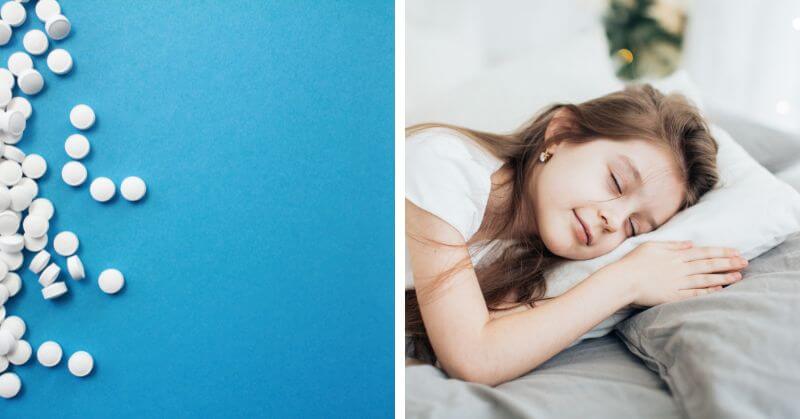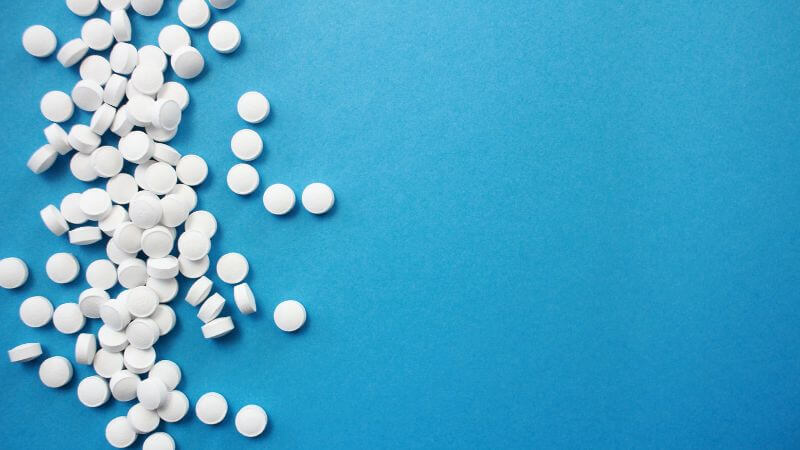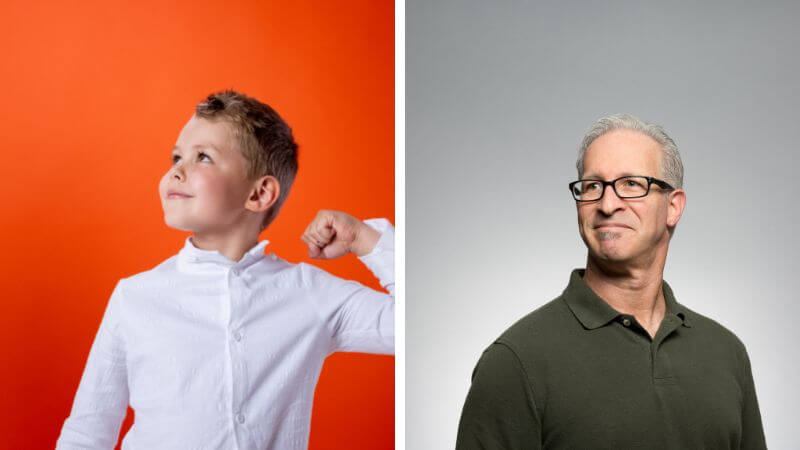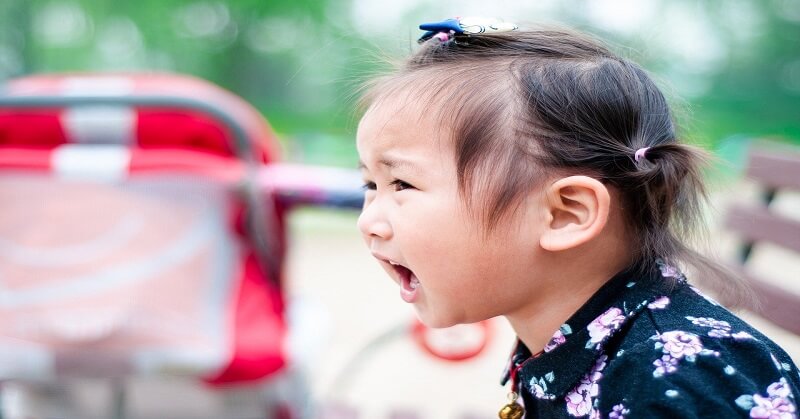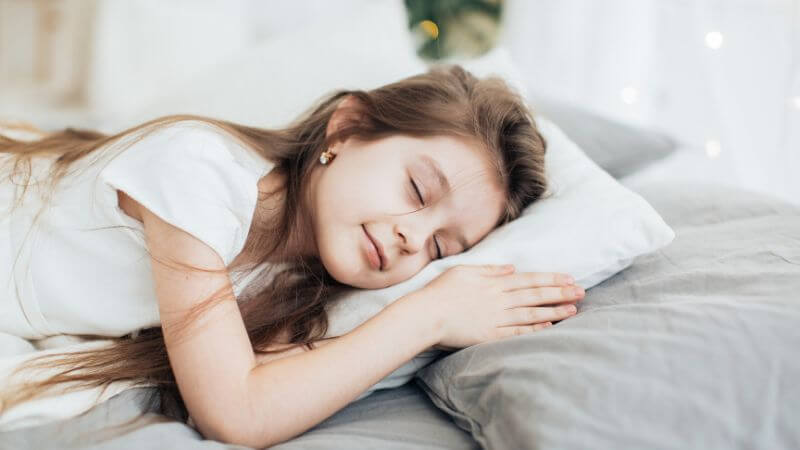Melatonin is a popular supplement, but it may be dangerous for kids. Discover how melatonin affects children and explore possible harmful side effects of melatonin in kids.
Melatonin is a hormone often used as a sleep aid in adults, but researchers increasingly suggest that it may be unsafe for children. While some parents swear by this supplement to help kids get better rest, the potential side effects of melatonin in kids need to be carefully weighed.
Research the Recommended Doses for Children
Before giving your child any form of melatonin supplement, make sure to research what manufacturers and experts recommend specific to children. The dosage requirements will vary depending on the child’s age, size, and needs. It’s important to always follow what’s recommended and never give a dosage more than what’s suggested. Too much melatonin can lead to unpleasant side effects like headaches, dizziness, nausea, as well as extra excitation or restlessness.
Understand How Melatonin May Affect Children Differently Than Adults
It’s important to understand that children may react differently to melatonin than adults do. The effects of melatonin on their bodies could be different since they’re still developing and growing.
Additionally, because children are more sensitive to potential side effects, it’s highly recommended to speak with a doctor before giving any type of medication or supplement to your child, especially if they have an existing health condition. Keeping these factors in mind can help you determine if melatonin will indeed benefit your child or not.
Beware of Possible Long-Term Side Effects on Cognitive Development in Young Kids
It’s important to note that melatonin is not FDA approved for use in young children and could even hinder the healthy development of a child’s cognitive, social, and motor skills.
Research conducted on adolescents found that taking very high doses of melatonin can increase levels of two hormones known to suppress cognitive performance — prolactin and cortisol. That being said, it’s essential to discuss any potential risks with a doctor before giving your child melatonin supplements, and strictly follow the dosage they prescribe.
Check for Potential Drug Interactions with Melatonin
If your child is taking medications or other supplements, you should speak with a medical professional to determine if melatonin interacts in any way with the drugs they are taking.
According to research, there is potentially a risk of drug interactions with certain antibiotics, cancer treatments, anticoagulants, and central nervous system depressants when taken together with melatonin. Additionally, melatonin has the potential to interact negatively with asthma medication and herbal remedies like St. John’s Wort.
Understand the Risks of Using Melatonin as a Sleep Aid in Children with Autism and ADHD
Studies have found a success rate of approximately 70 percent in children with autism when using melatonin as a sleep aid. However, it’s important to understand certain risks associated with using melatonin as an aid for these particular conditions.
Melatonin may increase daytime fatigue and disrupt natural hormone production, which can be especially damaging to a child’s growth and development over the long term. Additionally, due to its sedative effect, some studies suggest that taking melatonin may worsen hyperactivity and aggression in children with ADHD.
Potential Side Effects Of Melatonin In Kids
Some of the potential side effects of Melatonin In kids are as follows:
- Stomach cramps
- Itching
- Low body temperature
- Getting red in the face
- Bedwetting
- Increased heart rate
- Bad dreams
- Confusion
- Headache
- Altered sleep patterns
- Drowsiness
Frequently Asked Questions For Side-effects Of Melatonin in Kids
What are the negative effects of melatonin for kids?
Generally, melatonin seems to cause relatively few side effects in kids, most of them minor, such as headaches, increased bedwetting, nightmares, dizziness, mood changes, and morning grogginess, which disappear when discontinued.
Is it okay to give your child melatonin every night?
AAP and NIH agree that children shouldn’t take melatonin long-term, but neither organization defines what long-term means.
Can melatonin change a child’s behavior?
The use of melatonin is safe and does not result in any significant behavioral changes. Source
Does melatonin have long-term side effects on kids?
Although it is generally considered safe for short-term use, long-term use might delay children’s sexual maturation, possibly by disrupting the decline in nocturnal melatonin levels when puberty begins.
What can I give my child instead of melatonin?
- Routine
- Daytime naps
- Sleep in bed
- No caffeine: The American Academy of Child & Adolescent Psychiatry advises against children under 12 consuming any caffeine.
- No sugar before bed
- Screen time
- The bed is the bed: Keep your child’s bed a place to sleep, not to play.
- Stay active (Source)
Should I stop giving my child melatonin?
Melatonin is not recommended for chronic insomnia in adults or children, according to the American Academy of Sleep Medicine, which will publish a health advisory shortly stating that children should not be given it without medical supervision. Source
How long can kids safely take melatonin?
For healthy kids, melatonin is probably safe and effective in small doses, under the supervision of a physician, for two to four weeks. Source
How long does melatonin last in a child?
It has a half-life of 40 to 60 minutes. Half-lives refer to the amount of time it takes for the body to eliminate half of a drug. For a drug to be fully eliminated, it usually takes four to five half-lives.
Can melatonin mess with kids hormones?
Melatonin is a hormone, so taking supplements could theoretically affect hormonal development. Source
What is the problem with melatonin?
Some less common melatonin side effects include short-term depression, mild tremors, mild anxiety, abdominal cramps, irritability, reduced alertness, confusion, or disorientation. Source
What naturally makes kids sleepy?
According to the American Academy of Sleep Medicine, Milk, for instance, has tryptophan, and green tea has theanine, both of which may help sleep.
What drinks make kids sleepy?
The most important drinks to help toddlers get proper sleep is Milk.
How can kids fall asleep super fast?
5 Secret strategies to make kids fall asleep super fast are as follows:
- Proper bedtime routine.
- No devices in the sleeping room
- Create a cozy and comfortable environment before sleep.
- Mindful meditation can help.
- Cool the room.
Follow Us: Facebook | Instagram | Twitter | Youtube | Pinterest
I am sure you are part of our amazing group “Baby World” to stay tuned with our latest videos and posts.

